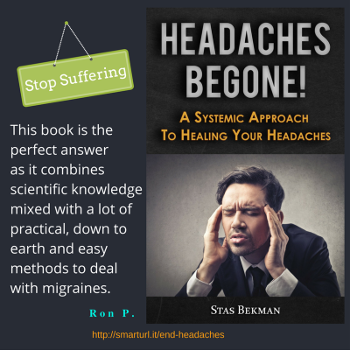The Square Foot Of Glass Where Jess Sat In Her Chairand Looked Down The Brae
Description
This section is from the book "A Window In Thrums", by J. M. Barrie. Also available from Amazon: A Window in Thrums.
The Square Foot Of Glass Where Jess Sat In Her Chairand Looked Down The Brae
Ah, that brae! The history of tragic little Thrums is sunk into it like the stones it swallows in the winter. We have all found the brae long and steep in the spring of life. Do you remember how the child you once were sat at the foot of it and wondered if a new world began at the top? It climbs from a shallow burn, and we used to sit on the brig a long time before venturing to climb. As boys we ran up the brae. As men and women, young and in our prime, we almost forgot that it was there. But the autumn of life comes, and the brae grows steeper; then the winter, and once again we are as the child pausing apprehensively on the brig. Yet are we no longer the child; we look now for no new world at the top, only for a little garden and a tiny house, and a handloom in the house. It is only a garden of kail and potatoes, but there may be a line of daisies, white and red, on each side of the narrow footpath, and honeysuckle over the door. Life is not always hard, even after backs grow bent, and we know that all braes lead only to the grave.
This is Jess's window. For more than twenty years she had not been able to go so far as the door, and only once while I knew her was she ben in the room. With her husband, Hendry, or their only daughter, Leeby, to lean upon, and her hand clutching her staff, she took twice a day, when she was strong, the journey between her bed and the window where stood her chair. She did not lie there looking at the sparrows or at Leeby redding up the house, and I hardly ever heard her complain. All the sewing was done by her; she often baked on a table pushed close to the window, and by leaning forward she could stir the porridge. Leeby was seldom off her feet, but I do not know that she did more than Jess, who liked to tell me, when she had a moment to spare, that she had a terrible lot to be thankful for.
To those who dwell in great cities Thrums is only a small place, but what a clatter of life it has for me when I come to it from my school-house in the glen. Had my lot been cast in a town I would no doubt have sought country parts during my September holiday, but the school-house is quiet even when the summer takes brakes full of sportsmen and others past the top of my footpath, and I was always light-hearted when Craigiebuckle's cart bore me into the din of Thrums. I only once stayed during the whole of my holiday at the house on the brae, but I knew its inmates for many years, including Jamie, the son, who was a barber in London. Of their ancestry I never heard. With us it was only some of the articles of furniture, or perhaps a snuff-mull, that had a genealogical tree. In the house on the brae was a great kettle, called the boiler, that was said to be fifty years old in the days of Hendry's grandfather, of whom nothing more is known. Jess's chair, which had carved arms and a seat stuffed with rags, had been Snecky Hobart's father's before it was hers, and old Snecky bought it at a roup in the Tenements. Jess's rarest possession was, perhaps, the christening robe that even people at a distance came to borrow. Her mother could count up a hundred persons who had been baptized in it.
Every one of the hundred, I believe, is dead, and even I cannot now pick out Jess and Hendry's grave; but I heard recently that the christening robe is still in use. It is strange that I should still be left after so many changes, one of the three or four who can to-day stand on the brae and point out Jess's window. The little window commands the incline to the point where the brae suddenly jerks out of sight in its climb down into the town. The steep path up the commonty makes for this elbow of the brae, and thus, whichever way the traveller takes, it is here that he comes first into sight of the window. Here, too, those who go to the town from the south get their first glimpse of Thrums.
Carts pass up and down the brae every few minutes, and there comes an occasional gig. Seldom is the brae empty, for many live beyond the top of it now, and men and women go by to their work, children to school or play. Not one of the children I see from the window to-day is known to me, and most of the men and women I only recognize by their likeness to their parents. That sweet-faced old woman with the shawl on her shoulders may be one of the girls who was playing at the game of palaulays when Jamie stole into Thrums for the last time; the man who is leaning on the commonty gate gathering breath for the last quarter of the brae may, as a barefooted callant, have been one of those who chased Cree Queery past the poor-house. I cannot say; but this I know, that the grandparents of most of these boys and girls were once young with me. If I see the sons and daughters of my friends grown old, I also see the grandchildren spinning the peerie and hunkering at I-dree-I-dree - I-droppit-it - as we did so long ago. The world remains as young as ever. The lovers that met on the commonty in the gloaming are gone, but there are other lovers to take their place, and still the commonty is here. The sun had sunk on a fine day in June, early in the century, when Hendry and Jess, newly married, he in a rich moleskin waistcoat, she in a white net cap, walked to the house on the brae that was to be their home. So Jess has told me. Here again has been just such a day, and somewhere in Thrums there may be just such a couple, setting out for their home behind a horse with white ears instead of walking, but with the same hopes and fears, and the same love light in their eyes. The world does not age. The hearse passes over the brae and up the straight burying-ground road, but still there is a cry for the christening robe.
Jess's window was a beacon by night to travellers in the dark, and it will be so in the future when there are none to remember Jess. There are many such windows still, with loving faces behind them. From them we watch for the friends and relatives who are coming back, and some, alas! watch in vain. Not every one returns who takes the elbow of the brae bravely, or waves his handkerchief to those who watch from the window with wet eyes, and some return too late. To Jess, at her window always when she was not in bed, things happy and mournful and terrible came into view. At this window she sat for twenty years or more looking at the world as through a telescope; and here an awful ordeal was gone through after her sweet untarnished soul had been given back to God.
Continue to:




